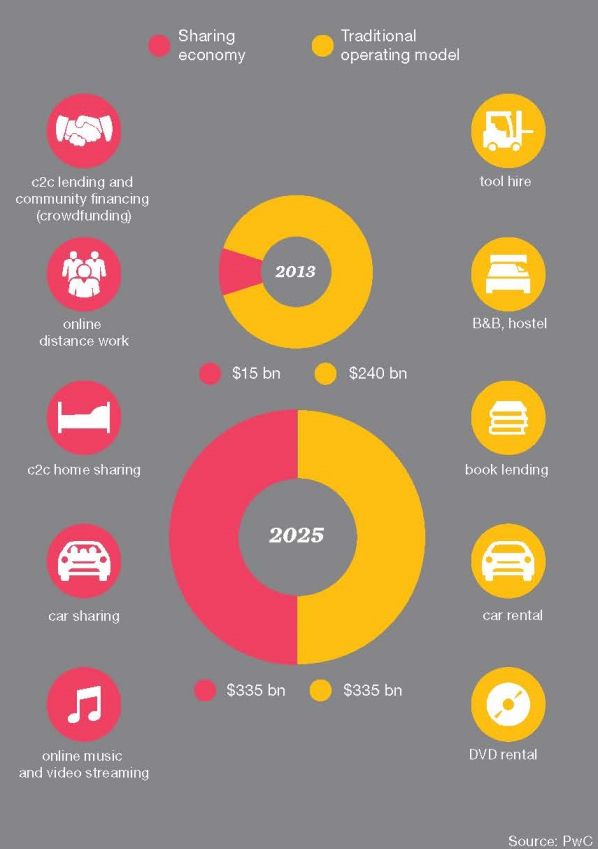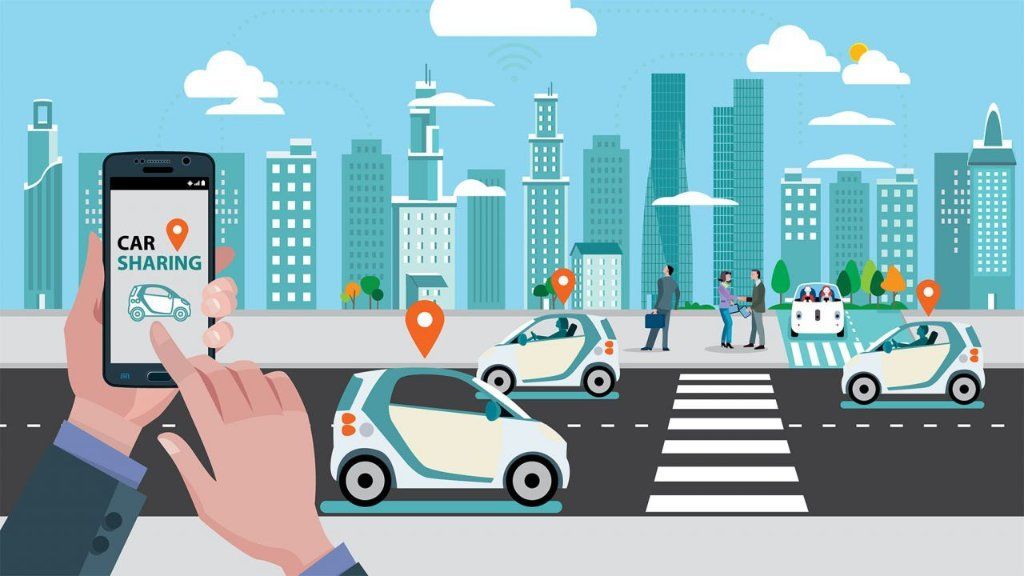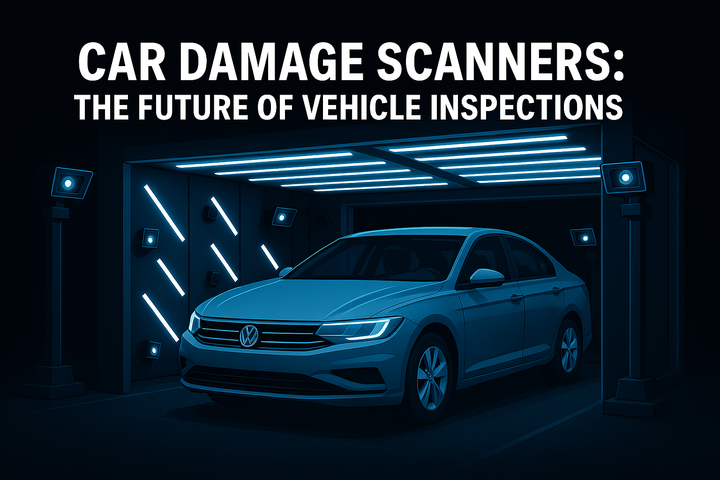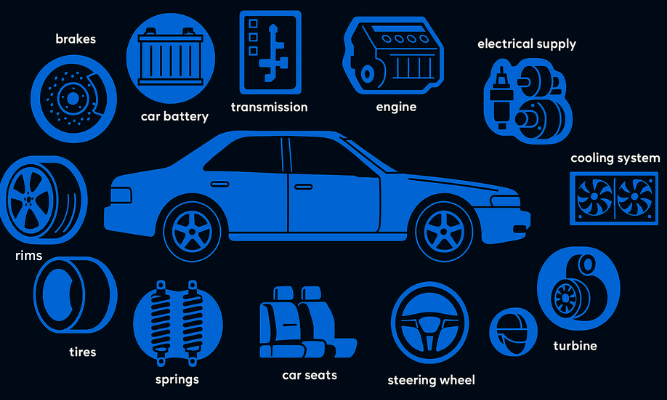The Role and Impact of Digital Vehicle Inspections in the Sharing Economy | Inspektlabs
With so many benefits to car-sharing, the sharing economy is the future of transportation. Incorporating automated vehicle inspection will aid the sharing economy in becoming more efficient and reliable.

In this post, we will cover the role and impact of digital vehicle inspections in the sharing economy. We will begin by understanding the fundamentals of the sharing economy. We will then explore how the sharing economy impacts the automobile industry. Post that, we will cover how digital vehicle inspections enhance the sharing economy for cars. Finally, we will discuss the challenges associated with digital vehicle inspections before concluding.
What is the Sharing Economy?
The sharing economy is a concept that allows people to get by without owning expensive and valuable items. This model enables people to share underutilized assets like cars and homes. In the sharing economy, users utilize the assets without owning them. The usage of the assets is shared. In the sharing economy, people can share office space, stay in strangers' houses, and more. The sharing economy can help people make ends meet and create more opportunities. In addition, it reduces costs for everyone involved. The illustration below depicts the growth that the sharing economy is expected to achieve. The sharing economy is predicted to reach a sales revenue of $335 billion by 2025. [PWC - Sharing or paring? Growth of the sharing economy]

What Does the Sharing Economy Offer for Cars?
The automobile sharing economy has become an appealing alternative to owning a vehicle, and you can find many benefits in the sharing economy. It reduces ownership costs, promotes sustainable mobility, and offers lower insurance rates. Whether you want a fun way to travel in the city or you need a vehicle for business travel, the sharing economy has a car for you. Users can also enjoy self-service, where they unlock their car for any trip. Typically, cars are available for rent by the minute, hour, or even day. It's convenient, easy, and affordable for everyone involved.
The sharing economy works best in urban areas where resources are scarce. By sharing a car, people can use it only when they need it and not worry about buying an expensive vehicle. While owning a car may be a comforting luxury, it is costly. According to the latest Consumer Expenditure Survey by the U.S. Bureau of Labor Statistics, transportation costs are the second-highest monthly expense after the mortgage, taking away about 16.4% of an average American household's expenses. In addition, gasoline costs are also rising rapidly. [CONSUMER EXPENDITURES – 2021, News Release, Bureau of Labor Statistics, U.S. Department of Labor] So, when users rely on the sharing economy, it is likely the more economically feasible option.
Another advantage of car-sharing is that it eliminates many of the costs associated with owning a vehicle. With car-sharing, you don't have to spend money on repairs and regular maintenance. You pay for the time you use and can even try out different vehicles to determine which works best. When car users do not own the car, that is the premise of the sharing economy. One primary sector where that relies on this concept is car rental. Companies like Hertz, for example, own many cars and rent their vehicles out. This business model constitutes a sharing economy because many users share those vehicles without holding any ownership over them.

Car sharing is a significant contributor to the sharing economy. In this framework, an individual who owns a car sublets their vehicle to someone else. This arrangement has a predetermined period, and contracts are often involved in detailing the parameters. Even the ride-hailing industry contributes to the sharing economy. Whether Uber, Lyft, or any other ride-hailing service, the exact vehicle is used by multiple people.
Similarly, the ambit of the sharing economy also extends to car leasing. Suppose a car owner leases out their car for a month or even a year; that constitutes an element of the sharing economy. Throughout all these use cases, the fundamental principle remains intact, i.e., that multiple people use the same assets while the ownership is held by just one entity, either an individual or a business.
The sharing economy revolutionizes the way people interact with other people and businesses. It allows people to access things they might otherwise not be able to afford. For example, many people cannot afford to buy a car or convince a traditional bank to provide them with a personal loan. These platforms allow them to use such resources without risk. The sharing economy has also altered how businesses operate by making these services accessible and convenient for a larger population.
The sharing economy is growing because millennials don't want to own assets. After all, it is not economically feasible for them. Most millennials are understandably hesitant to invest in a car that costs a lot of money and then depreciates quickly. Similarly, the younger generations are unable to own houses. So, there is no doubt that the sharing economy is here to stay.

What Is The Relevance Of Digital Vehicle Inspections In The Sharing Economy?
Now the question is why digital inspections are relevant for the sharing economy. As assets become more shared, the need for asset inspections goes up. Let us consider car sharing to help us understand why this is the case. Imagine you rent your car to one person, who gives it back to you, and then you rent it again. This cycle can continue as often as you would like to rent your car out if there is enough demand for it. So, the number of times you need to do car inspections goes up tremendously because you will need to inspect it every time you get your car back. You would also ideally want to thoroughly check your car each time before renting it out to establish a baseline.
Digital inspections offer a significant advantage, which is that these inspections happen in a decentralized form. For example, in a traditional rental car inspection, the users must bring the car to a location where an employee can manually inspect the vehicle. This approach is inconvenient and relies entirely on the working hours of the business. In the sharing economy framework, vehicles can change hands rapidly, sometimes multiple times during the day. Bringing vehicles to a specified location each time is impossible in these cases. Digital inspections happen using smartphones, eliminating the constraints associated with traditional vehicle inspections. This model enables users to conduct an inspection within minutes, which makes digital inspections feasible and efficient for the sharing economy.
What are the Challenges With Digital Inspections?
The most significant challenge for digital inspections in the sharing economy is establishing a trustworthy and transparent platform. The most cited pain point by car renters worldwide is that they face unwarranted surge charges in the form of fees or penalties over damages they did not cause. Many users have stated that their credit cards get charged several days after they return their rental car without any justification or intimation. Many users struggle to dispute these charges since they cannot prove that the damages did not exist when they returned their vehicles. This is why you will always come across headlines and articles like the ones depicted below.

There is a glaring lack of trust rooted in the system. So, how can companies overcome these challenges? Inspektlabs is working to combat these issues and provide a holistic end-to-end solution while ensuring reliability and building trust. As illustrated below, users can quickly scan the car before and after each pickup or drop to maintain an accurate and irrefutable record. A vehicle in the sharing economy can also change hands without manual supervision, drastically improving the customer experience.
Furthermore, there is little scope for fraud in this framework. Car renters and rental agencies can rest assured that the inspection reports are accurate and reliable. Car renters will also become aware of any surge charges that they may be liable for, giving them an option to dispute any unwarranted claims instantly. A car 360° video provides a comprehensive and accurate representation of the vehicle's status during the inspection.

In addition to generating the damage inspection report, Inspektlabs' automated solution also measures the odometer and fuel meter readings. These values help paint a clear and holistic picture of how each renter utilized the vehicle. These parameters also help rule out fraud and any other miscellaneous inconsistencies.

Conclusion
The sharing economy has radically transformed the way consumers buy goods and services. This trend provides a vast opportunity for visionary companies to create new business models. Car-sharing is a great way to simplify finances and eliminate a large portion of the monthly budget. In the sharing economy, it makes perfect sense for consumers. With so many benefits to car-sharing, the sharing economy is the future of transportation. Incorporating automated vehicle inspection will aid the sharing economy in becoming more efficient and reliable.



